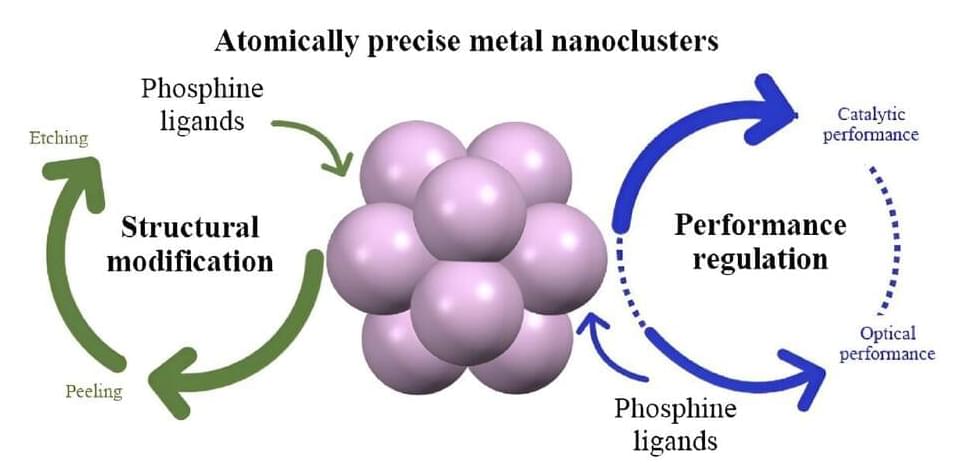A team of researchers has reviewed a unique method for reforming the structures of ultra-small nanomaterials. These nanomaterials, called metal nanoclusters, bridge the gap between the metal atom and the bulk metal, making them highly useful in both basic and applied research. Metal nanoclusters have the potential for wide-ranging applications in the biomedical fields.
The team’s review paper is published in the journal Polyoxometalates.
The team investigated the phosphine-LEIST reaction. This method shows advantages in metal nanoclusters’ structural modification and property modulation. “The method we reviewed is able to modulate the atomically precise structure of metal nanoclusters and regulate their corresponding performance,” said Man-Bo Li, a professor at Anhui University, China.
